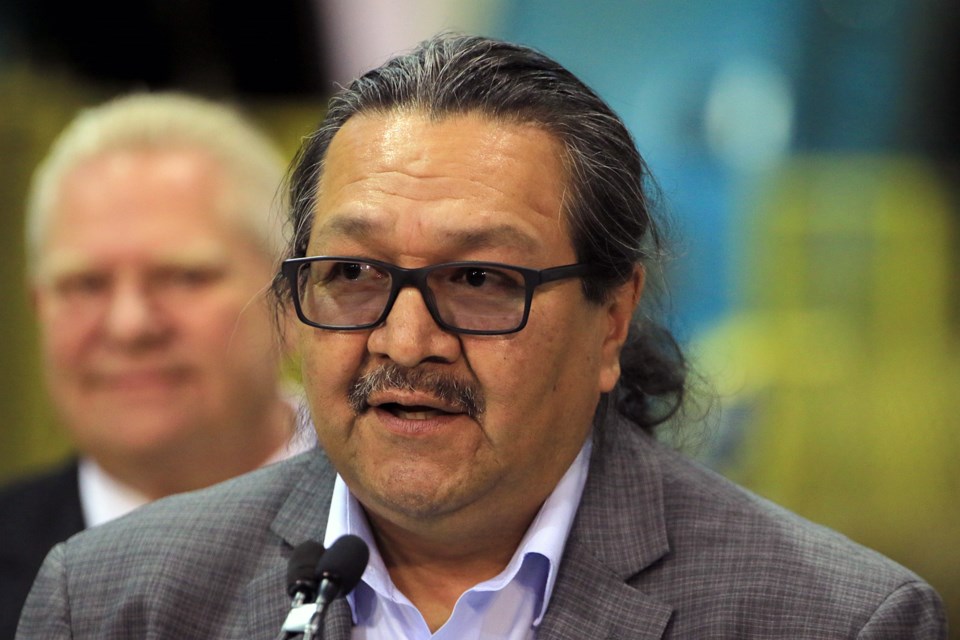OGOKI POST — According to Indigenous Services Canada, 23 First Nations in Ontario are under long-term drinking water advisories.
One such community is Marten Falls First Nation, at the junction of the Albany and Ogoki rivers.
“Marten Falls has been under a boil water advisory for close to 20 years,” Chief Bruce Achneepineskum said Tuesday in a phone interview. “That’s a long time.”
Achneepineskum agrees with the Chiefs of Ontario that clean tap water in First Nations is a highly important issue in the April 28 federal election.
The chiefs organization wants the next federal government to revive Bill C-61, clean-water legislation for First Nations that died on the order paper the moment Parliament was prorogued in January.
“Ensuring that Bill C-61 is re-introduced in the next session of Parliament is of utmost importance,” a recently released Chiefs of Ontario report states.
“First Nations look forward to working with Canada to ensure that this legislation includes clear commitments to adequate funding, robust protections for source water, and enforceable provisions that guarantee safe drinking water for all First Nations in Ontario.”
Achneepineskum said the issue “is important for our First Nation” and he hears “a lot about it in the news” but most of what candidates have to say about it is just “pandering.”
“There's a lot of talk, but there isn’t much commitment,” he said. “I just wonder, when the election is over, how much of that is going to come to actual reality.”
Drinking-water concerns in Marten Falls were compounded last December by an operational failure in the community’s wastewater treatment plant.
A state of emergency was declared, and Achneepineskum said Tuesday it remains “technically in place” though the situation has improved with the replacement of two faulty pumps.
Marten Falls is southeast of Neskantaga First Nation, where this winter the community marked 30 years of being under a boil water advisory.
Neskantaga Chief Chris Moonias told Newswatch in January he was disappointed to see Bill C-61 die with prorogation.
“I want to hear party leaders say that they’ll continue to address the boil water advisories right across Canada — not only Neskantaga — and make sure that there is legislation put in place to protect our communities and our source water,” Moonias said.
The chiefs organization’s Pathways to Progress report says “access to safe drinking water is a fundamental right, yet many Ontario First Nations continue to face significant challenges in achieving reliable and safe water services.
“Despite numerous commitments by the federal government, First Nations have been disproportionately affected by long-term drinking water advisories and inadequate infrastructure funding.
“These persistent issues not only jeopardize the health and well-being of First Nations and their rights to self-determination and governance over natural resources, but also undermine Canada and Ontario on the global stage.”
Besides re-introduction of Bill C-61, the report calls for “clear guidelines for the creation and management of water protection zones” as well as “capacity support for First Nations to protect their members and to build infrastructure in response to climate change impacts” and other measures.
